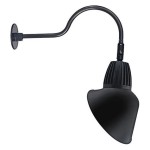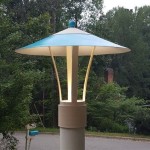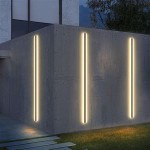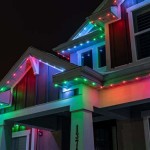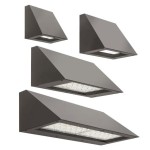Do Outdoor Light Fixtures Need To Be Grounded?
Outdoor light fixtures, like their indoor counterparts, require grounding for safety reasons. Grounding provides a path for electricity to safely travel back to the source in the event of a fault or short circuit. Without proper grounding, an electrical shock could occur, potentially causing serious injury or even death. This article will delve into the importance of grounding outdoor light fixtures, explore different grounding methods, and highlight the consequences of neglecting this critical safety measure.
The Importance of Grounding Outdoor Light Fixtures
Grounding is an essential safety feature in any electrical system, including outdoor lighting. It serves as a protective measure against electrical shocks, which can occur due to various factors such as:
- Faulty wiring: Deterioration or damage to the wiring in the fixture or the electrical system can lead to exposed wires and the potential for an electrical shock.
- Moisture: Outdoor fixtures are constantly exposed to moisture from rain, snow, and humidity. Water can seep into the fixture, creating a conductive path for electricity and increasing the risk of shock.
- Lightning strikes: Lightning can strike nearby objects, including electrical wiring, causing surges that could damage the fixture and create a hazardous situation.
When a ground fault occurs, grounding provides a safe pathway for the electricity to flow back to the source, minimizing the risk of electrical shock. The ground wire acts as a conduit for the excess current, diverting it to the ground and protecting anyone who might come into contact with the faulty fixture.
Grounding Methods for Outdoor Light Fixtures
Several methods are commonly used to ground outdoor light fixtures, each with its unique applications and advantages:
1. Grounding Through the Electrical System
The most common and effective method of grounding outdoor light fixtures is through the electrical system. This involves connecting the ground wire of the fixture to the ground bus bar in the electrical panel. The ground bus bar is connected to the grounding electrode system, typically a copper rod driven into the ground, which acts as a safe path for electrical current to flow back to the earth.
2. Grounding Using a Ground Rod
In some cases, where direct connection to the electrical system isn't feasible, a separate ground rod can be installed near the fixture. This method involves driving a copper rod into the ground and connecting it to the ground wire of the fixture using a grounding wire. The ground rod provides a direct path for excess current to flow back to the earth.
3. Grounding with a Ground Fault Circuit Interrupter (GFCI)
GFCIs are essential safety devices that are designed to detect and interrupt the flow of electricity in case of a ground fault. They are typically installed in outdoor electrical outlets, providing protection for the entire circuit. While GFCIs do not directly ground the fixture, they effectively prevent electrical shock by immediately breaking the circuit if a ground fault occurs.
Consequences of Not Grounding Outdoor Light Fixtures
Neglecting to ground outdoor light fixtures poses several risks, including:
- Electrical Shock: The most significant risk associated with ungrounded fixtures is electrical shock. If a ground fault occurs, the fixture's metal parts can become energized, potentially causing severe injuries or even death to anyone who touches them.
- Fire Hazards: Ungrounded fixtures can cause fires if a short circuit occurs. Without a proper grounding path, the excess current can overheat the wiring, leading to a fire.
- Damage to Electrical System: Faulty electrical wiring in ungrounded fixtures can damage other parts of the electrical system, increasing the risk of further problems and costly repairs.
It is crucial to prioritize safety and ensure proper grounding for all outdoor light fixtures. By taking the necessary precautions, you can minimize the risks associated with electrical hazards and create a safe and functional outdoor environment.

Do Outdoor Lights Need To Be Grounded Your Diy Backyard
How To Replace An Outdoor Light

How To Install An Outdoor Light Fixture Des And Sses
How To Replace An Outdoor Light

10 Best Outdoor Lighting Ideas Landscape Design Secrets A Piece Of Rainbow

Home Improvement How To Remove Replace Outdoor Light Fixtures Porch Driveway Etc

Home Improvement How To Remove Replace Outdoor Light Fixtures Porch Driveway Etc

Outdoor Light Fixture Change Up

Replacing An Outdoor Light Fixture

What Light Fittings Should We Install Outdoors When It Rains
Related Posts


